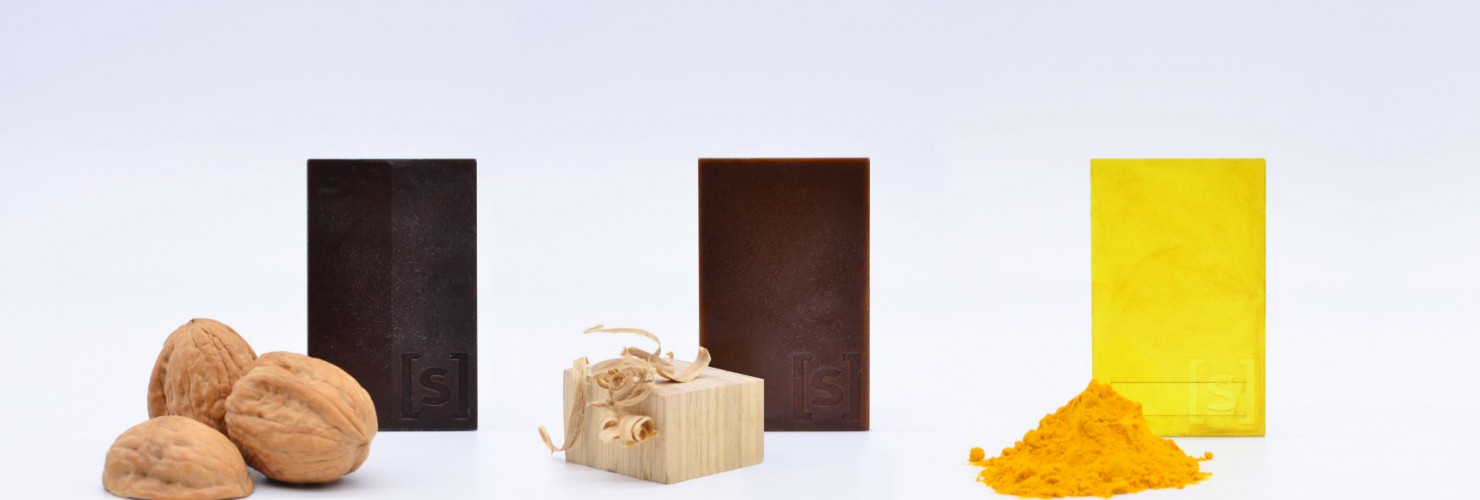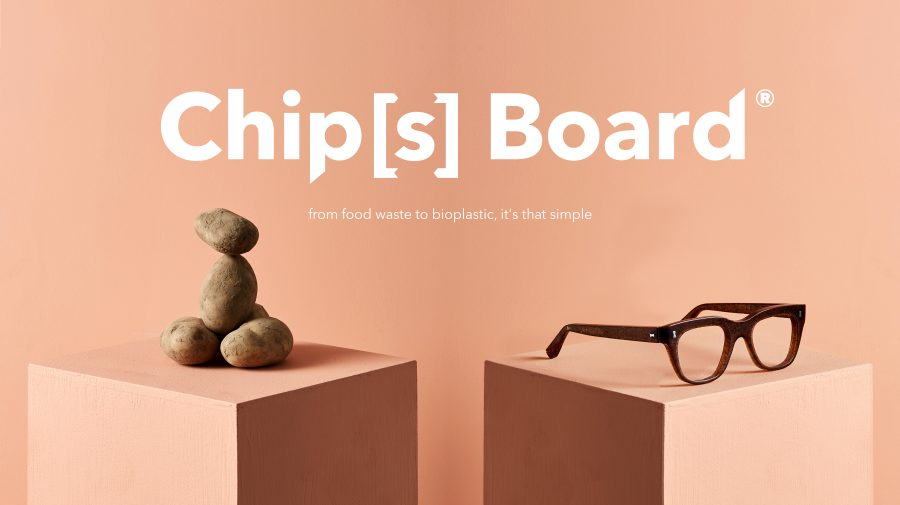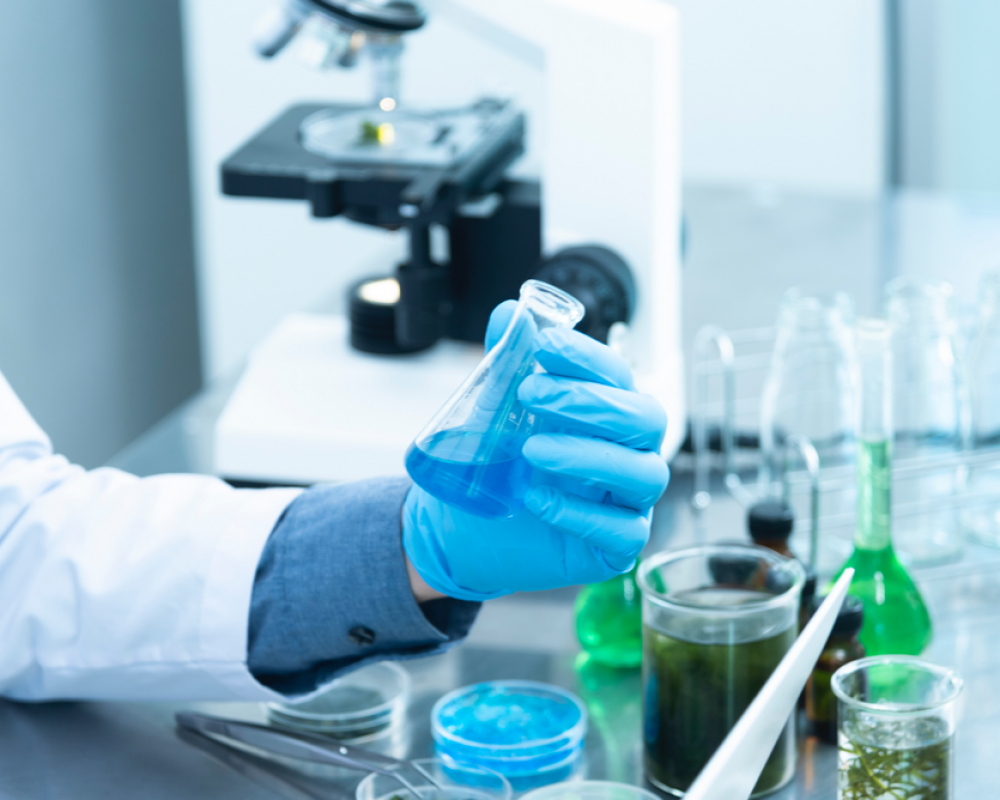
Parblex®: from food waste to bioplastics
Chip[s] Board is a London-based producer of revolutionary bioplastics and bioplastic composites made from the food we leave behind. The company was awarded funding from the KTN Spark Awards to work with the Biorenewables Development Centre (BDC) to investigate the use of agri-food residues and side streams for their bioplastic production.

For the company’s founders Rowan Minkley and Rob Nicoll, it was clear that the design industry is under growing pressure to find ways to become more sustainable. Designers want to replace conventional petrochemical based materials with natural, organic and biobased materials but without compromising aesthetics and functionality. With their passion for designing and sustainability, Rowan and Rob developed new bioplastic materials and composites using potato waste from industrial food processing which can be reused, reprocessed and are biodegradable. The Parblex® Plastic is a translucent pure or fibre reinforced bioplastics with incredible surface finish and durability for fashion and interior design. Using potato waste from McCain UK, the company established a closed-loop self-sustaining circular economy business model.
After further discussions with food manufactures, Chip[s] Board started looking at use of other food waste streams to produce Parblex® Plastics.
The KTN Spark Award enabled the BDC’s team to test various food wastes as a feedstock for a microbial fermentation process to obtain an organic acid used in the production of Parblex® bioplastics. Using various bacterial species typically used by the dairy industry to give a characteristic sour taste to yoghurts, cheeses and fermented food products, the team at the BDC showed that these microbes can produce bioplastic precursor when grown on various food waste streams.
Rosie Nolan who conducted the project’s research thinks that these results offer the potential to further optimise the fermentation process.
She commented: The fermentation development work yielded extremely promising results, the quantities of organic acid produced were comparable to those observed in pure sugar fermentations. I believe the conversion yields could be optimised even further by using a Design of Experiment approach.
For the Chip[s] Board’s team, this is an exciting opportunity for utilising the abundant resources that are currently mismanaged to produce their bioplastics materials rather than continuing to process virgin materials.
Rowan Minkley commented: Product availability varies enormously across regions and countries so diversifying the feedstocks used in the production of Parblex® is a key requirement to enable commercialisation and widespread manufacturing.
With the support of the KTN Spark Award, Chip[s] Board obtained lab-scale evidence that various food waste by-products can be successfully used as a feedstock for microbial fermentation to produce bioplastics precursors. The company is planning to further explore the process which promises to use biological resources and cut our dependence on fossil resources.
Notes to editors:
This project has received funding from the KTN Spark Awards programme
The BDC is part-funded by the England European Regional Development Fund as part of the European Structural and Investment Funds Growth Programme 2014-2020
The York, North Yorkshire and East Riding (YNYER) LEP awarded a grant of £1M to the BDC as part of the Local Growth Fund (LGF) support which funded the equipment used to carry out this project. For more information visit: https://www.businessinspiredgrowth.com/funding/local-growth-fund/
